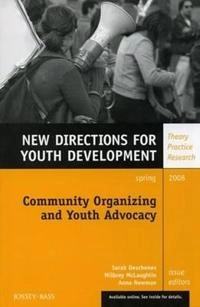

Community Organizing and Youth Advocacy: New Directions for Youth DevelopmeUpplaga 1
- Upplaga: 1a upplagan
- Utgiven: 2008
- ISBN: 9780470343616
- Sidor: 136 st
- Förlag: John Wiley & Sons
- Format: Häftad
- Språk: Engelska
Om boken
Åtkomstkoder och digitalt tilläggsmaterial garanteras inte med begagnade böcker
Mer om Community Organizing and Youth Advocacy: New Directions for Youth Developme (2008)
I maj 2008 släpptes boken Community Organizing and Youth Advocacy: New Directions for Youth Developme skriven av Nils Tryding. Det är den 1a upplagan av kursboken. Den är skriven på engelska och består av 136 sidor. Förlaget bakom boken är John Wiley & Sons som har sitt säte i Hoboken.
Köp boken Community Organizing and Youth Advocacy: New Directions for Youth Developme på Studentapan och spara pengar.
Referera till Community Organizing and Youth Advocacy: New Directions for Youth Developme (Upplaga 1)
Harvard
Oxford
APA
Vancouver



















